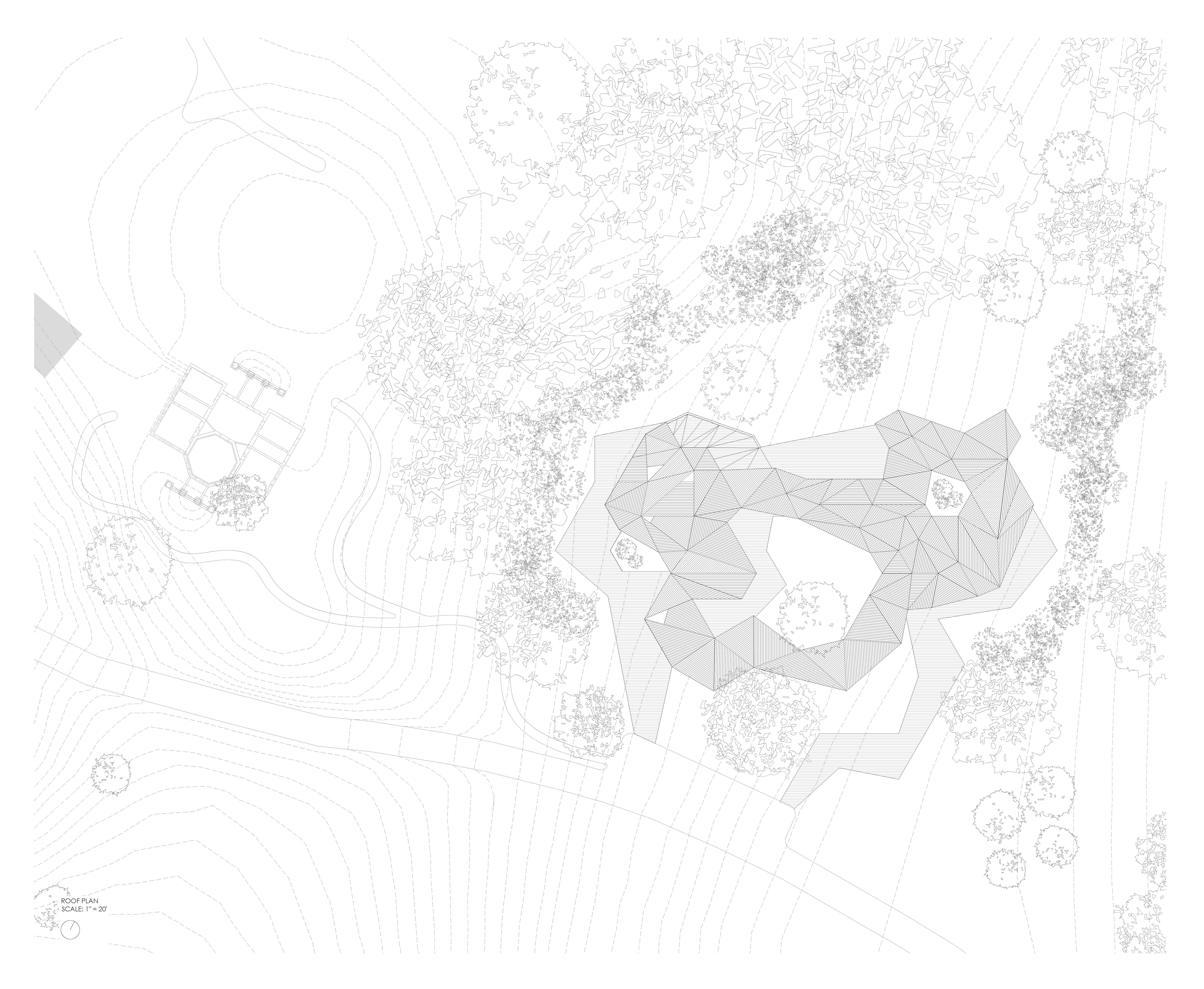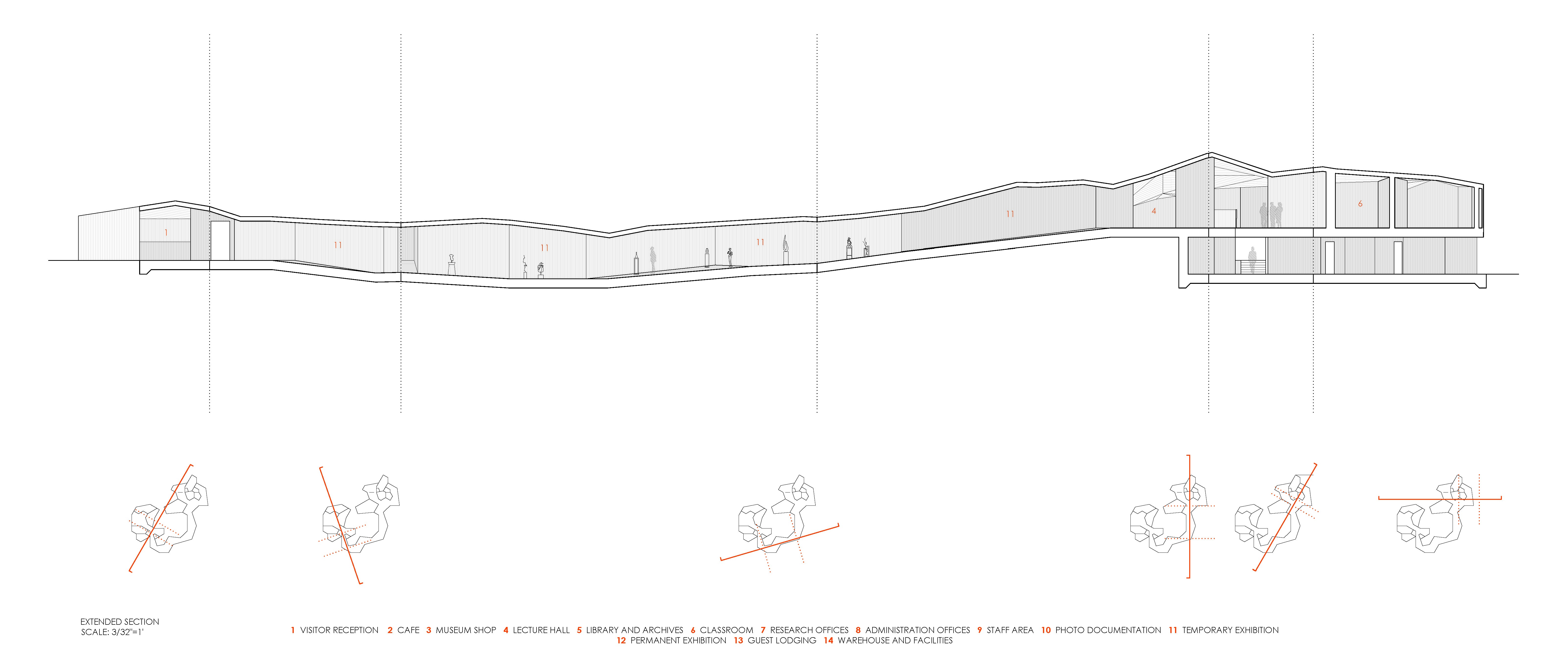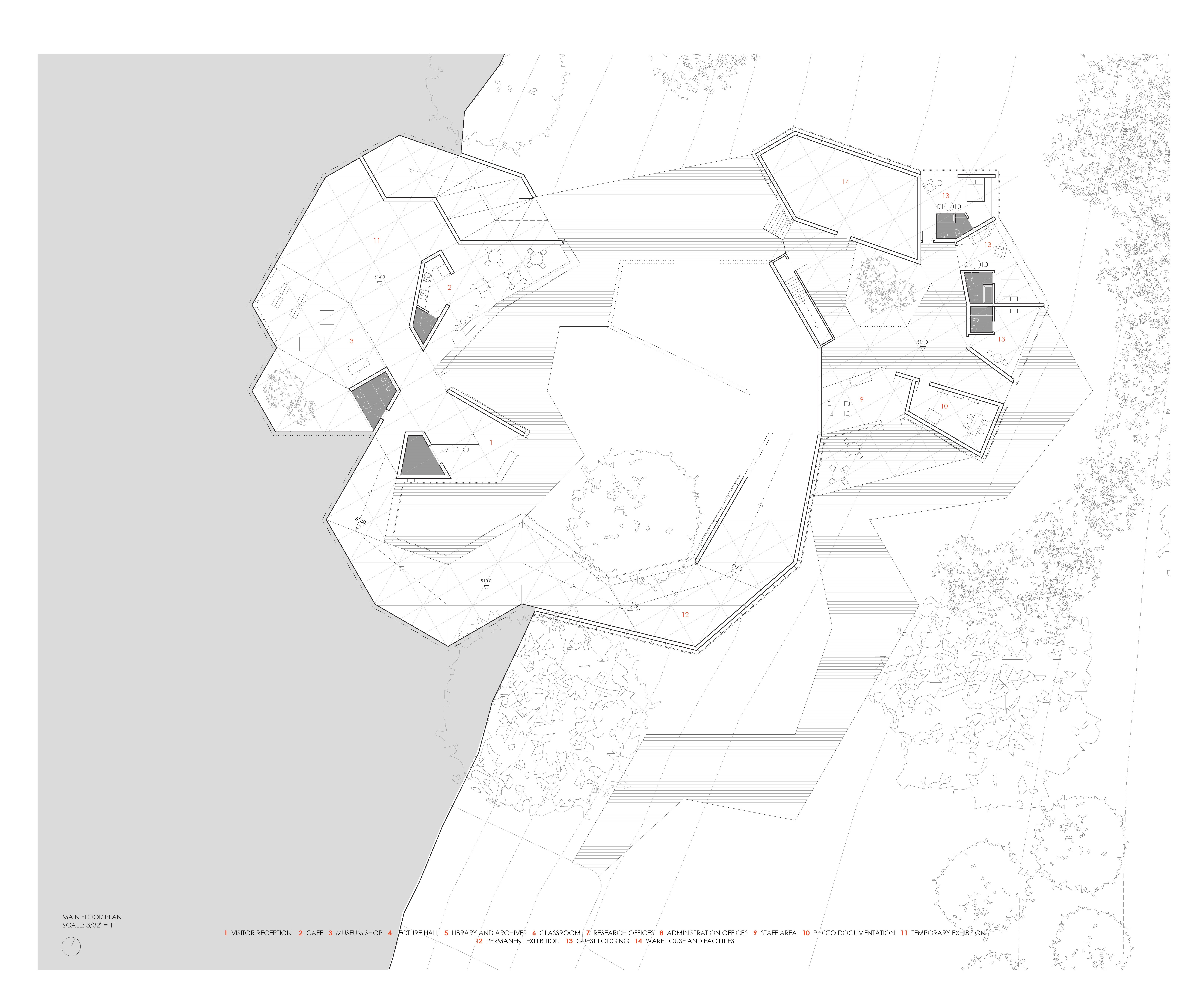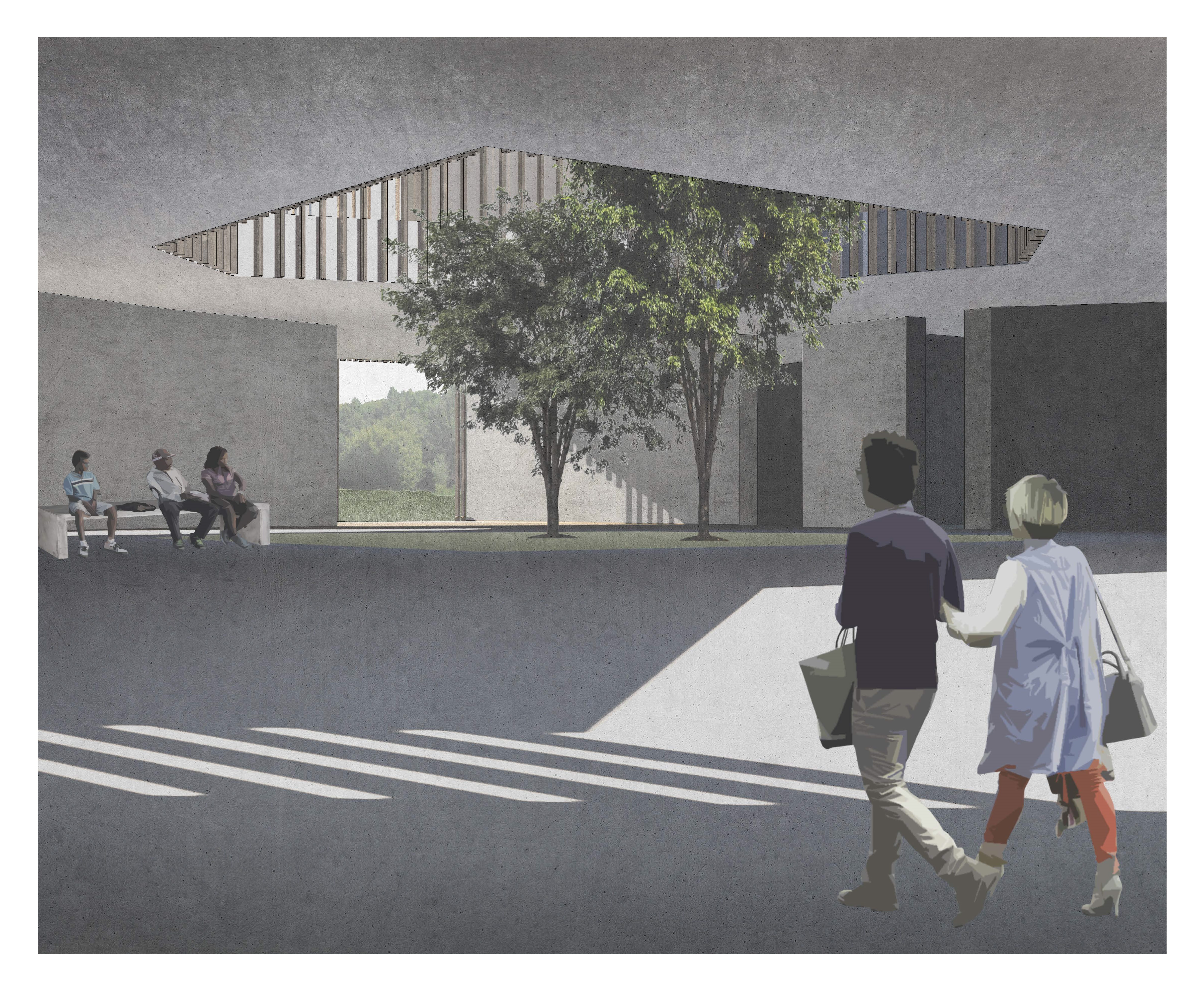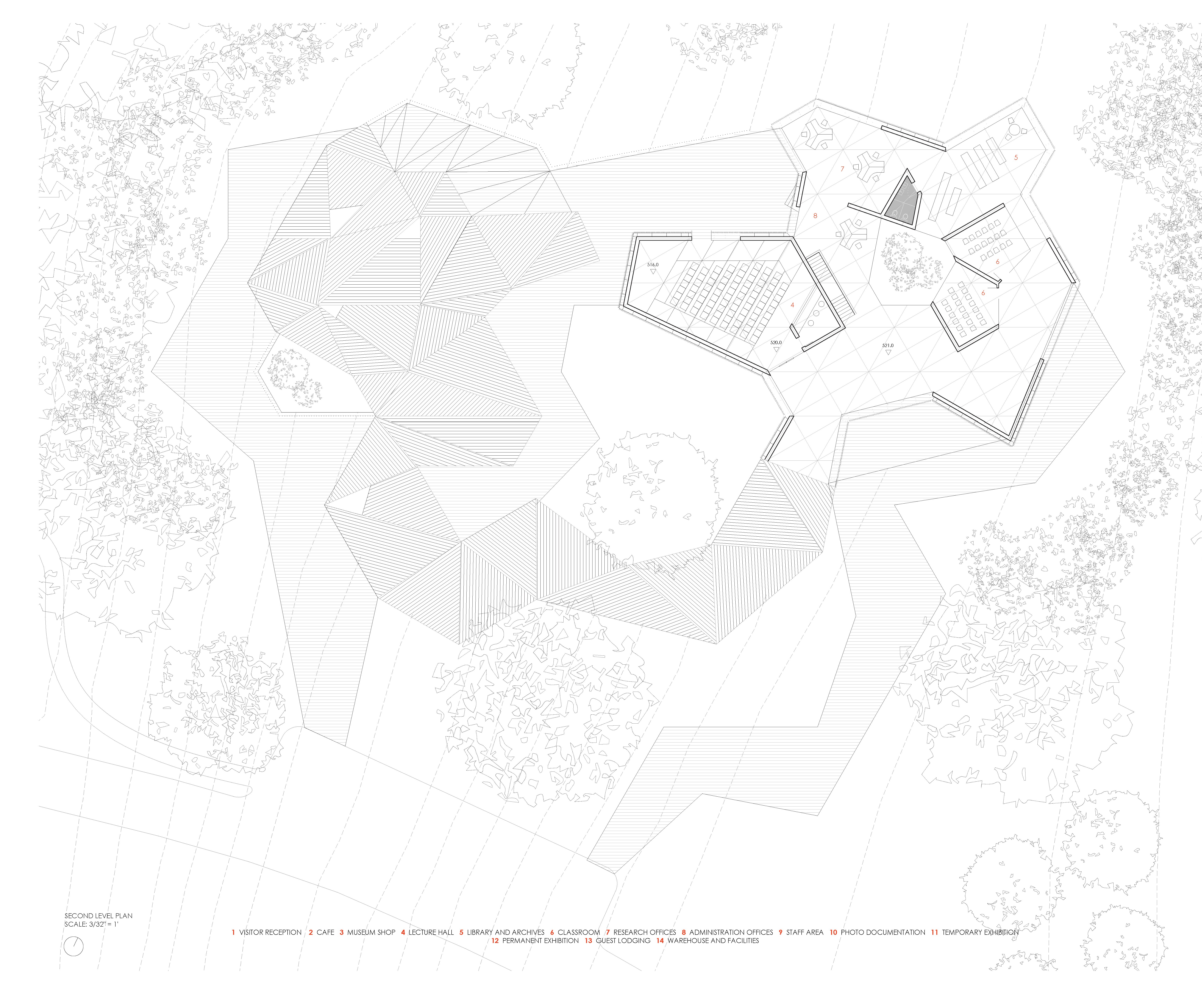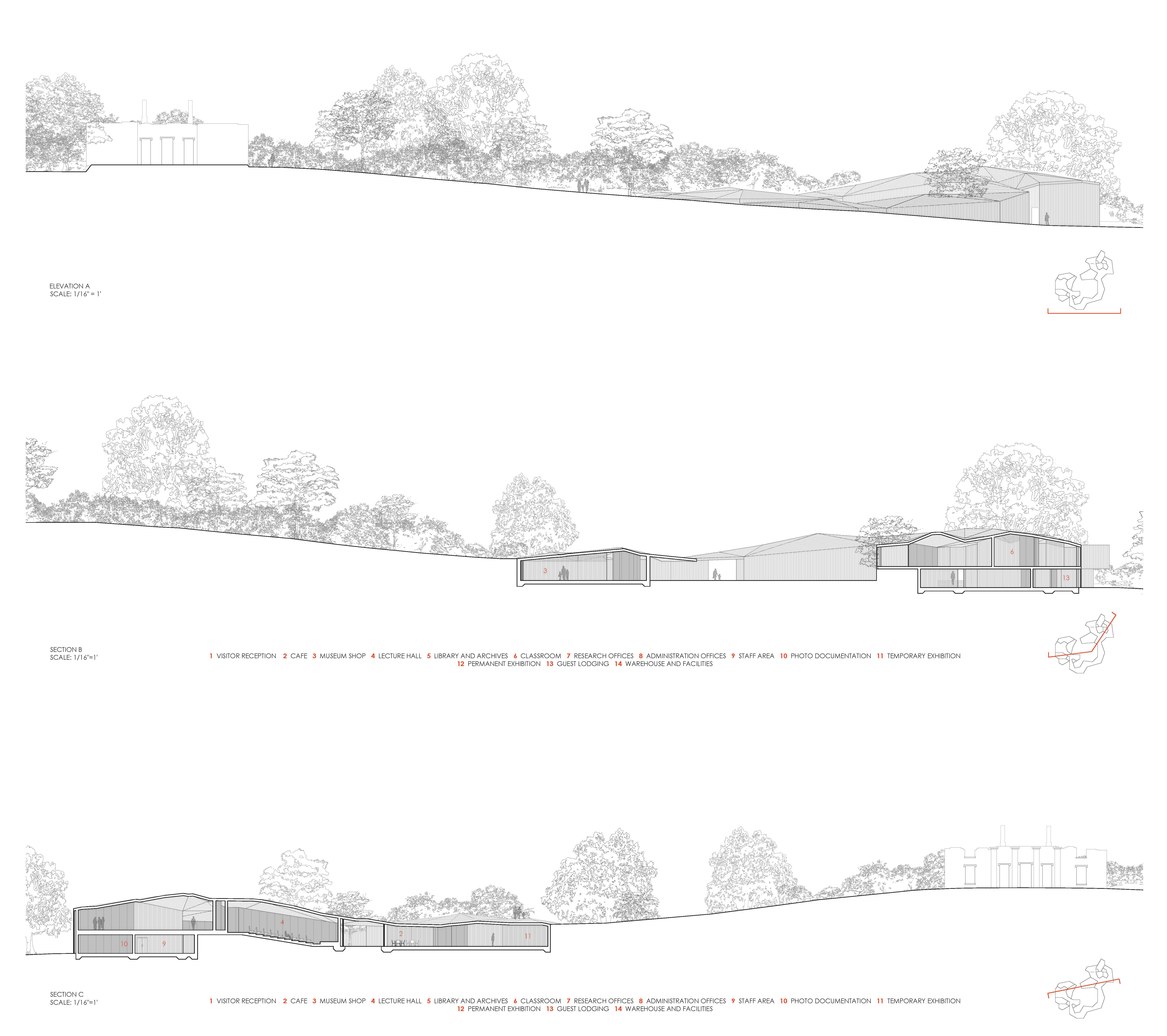INSTRUCTOR INES MARTIN ROBLES
GRADUATE PROGRAM | YEAR ONE
︎︎︎︎︎
GRADUATE PROGRAM | YEAR ONE
Situated outside of Charlottesville, VA, The American Architectural History & Research Center (ARCHA) aims to educate
and inform visitors of the importance of history through its
commitment to historic preservation. One of the sites under
its jurisdicion is the Barboursville ruins, the only building in
Orange County, VA known to have been designed by Thomas
Jefferson; it was constructed in the 1800s for his friend
James Barbour, the Governor of Virginia from 1812 - 1814.
The project title, “Obscurity through the Hidden Path”, speaks to both the Barboursville landscape itself, as well as the desired dynamics of discovery that visitors would experience when approaching the ruins and touring the visitor center. By design, the entrance to the building is not initially apparent, rather the visitor is guided along a path similar to that leading up to the ruins. Visitors can see glimpses of the visitor center through the trees, yet the entirety of the structure is not apparent until one reaches the end of the winding pathway.
A subtle relationship occurs between the building and the landscape, where a portion of the building lies underground; this allows for the seamless transition from the natural landscape of the ground to the artificial landscape of the roof. Overall, the project aims to emphasize the dynamics of discovery by keeping intact the obscurity of the path leading to the new visitor center, just as the path is obscured to the Barboursville ruins when visitors approach the historic site.
The project title, “Obscurity through the Hidden Path”, speaks to both the Barboursville landscape itself, as well as the desired dynamics of discovery that visitors would experience when approaching the ruins and touring the visitor center. By design, the entrance to the building is not initially apparent, rather the visitor is guided along a path similar to that leading up to the ruins. Visitors can see glimpses of the visitor center through the trees, yet the entirety of the structure is not apparent until one reaches the end of the winding pathway.
A subtle relationship occurs between the building and the landscape, where a portion of the building lies underground; this allows for the seamless transition from the natural landscape of the ground to the artificial landscape of the roof. Overall, the project aims to emphasize the dynamics of discovery by keeping intact the obscurity of the path leading to the new visitor center, just as the path is obscured to the Barboursville ruins when visitors approach the historic site.
